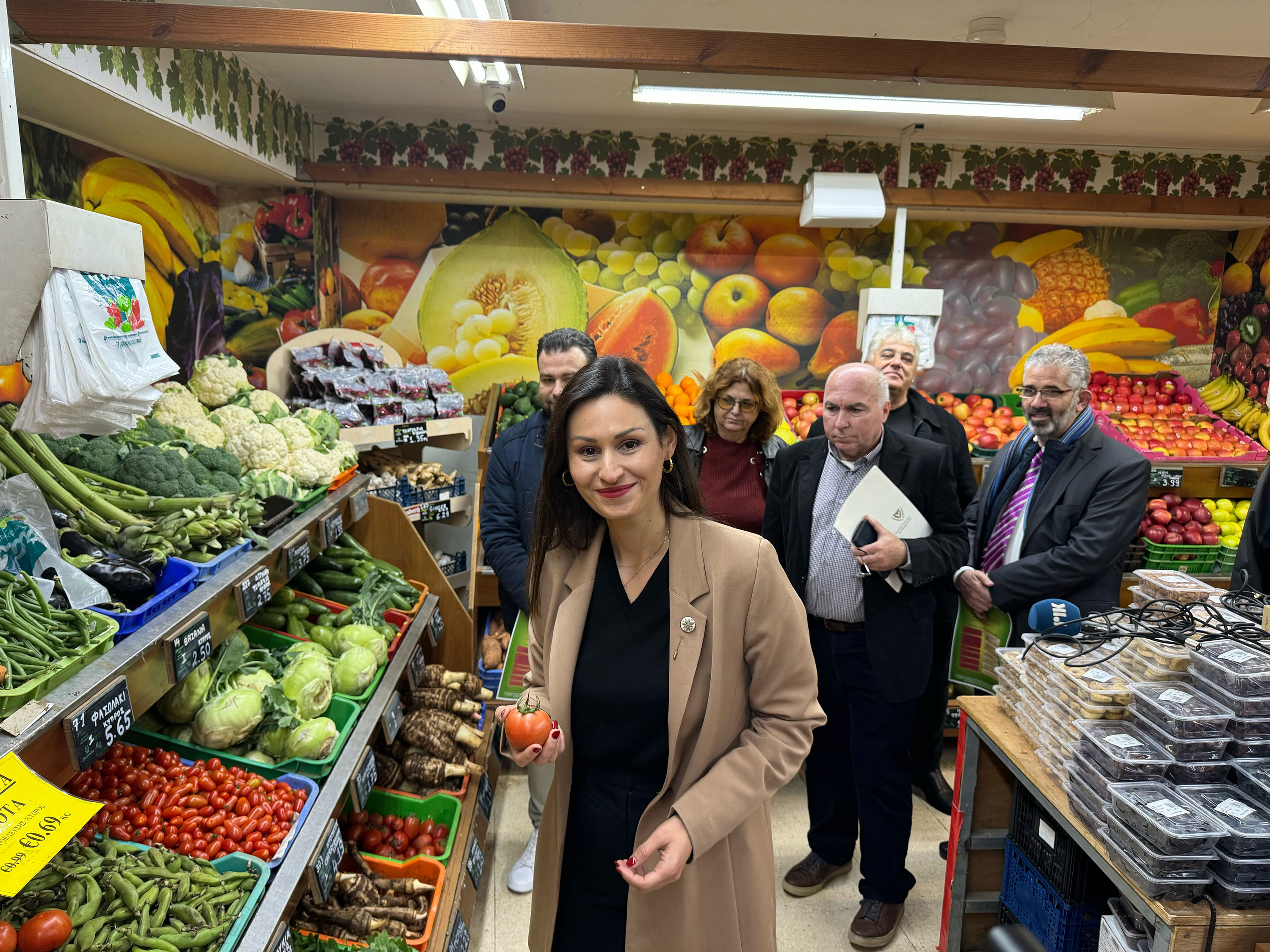Agriculture Minister Maria Panayiotou visited Larnaca supermarkets on Monday as part of an established tour of shops carried out during the Christmas holidays. This year there were no shortages in the market, she said, as if the main concern of people doing their Christmas shopping was whether there were adequate quantities of lamb and chicken in the market.
She said: “This year we are in Larnaca. We want to see issues of standardisation, issues of adequacy, issues of compliance with regulations and specifications we have set, because we want the product that reaches the consumer to be of high quality.” Is it really the job of the agriculture minister to check standardisation and compliance of products with specifications, and was she able to do this during a short visit to a few supermarkets?
It was a diversionary tactic, Panayiotou not wanting to talk about the high prices for most supermarket products that is the overriding concern of most people, because these affect their daily lives. A Cypronetwork barometer published on Monday found that inflation was the top concern of most Cypriots (63 per cent).
Last Wednesday, meanwhile, the consumers association estimated that the cost of Christmas lunch or dinner had increased by 20 per cent since last year, when the rate of inflation was higher. It was ironic that during her supermarket tour in Larnaca, Panayiotou was photographed holding a tomato, the price of which had gone up by 131 per cent, according to the consumers’ association. She was happy there were plenty of tomatoes in the supermarkets and that they were of high quality, but said nothing about the astonishing increase in their price.
Instead, she spoke about the e-kophini phone app which allows consumers to check the prices producers charge for fruit and vegetables against those of the retailers. It was another diversionary ruse, the minister not wanting to talk about the e-basket, that would really help consumers by giving them the price charged for a range of products by each supermarket. A law was passed at the end of 2023, but nobody knows when this app will be ready. Some of the big supermarkets are strongly opposed to it and it appears the government has bowed to their pressure, happy to delay its introduction for as long as possible.
Yet access to information about the prices charged by different retailers on basic products is the only way to help consumers make their money go a longer way at a time of high prices. The inflation rate may be down to an acceptable two per cent, but the prices, which soared in the last two years, have not come down, so people are still having difficulty making ends meet.
As the government cannot impose ceiling prices and zero VAT covers very few products, the only way to help people cope with high prices is by offering price information about broad consumption products on a daily or weekly basis. This is not to say the e-basket will make things cheaper, but it would make it easier for people to manage their money by seeking lower-priced products; it could also spark some competition among the big retailers which would also benefit cash-strapped consumers.
Merry Christmas.






Click here to change your cookie preferences